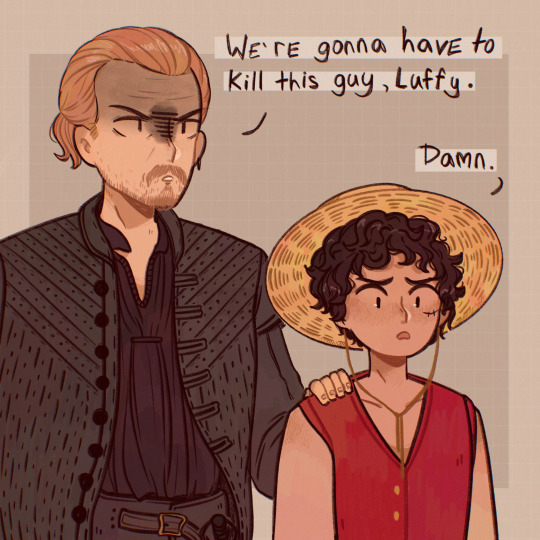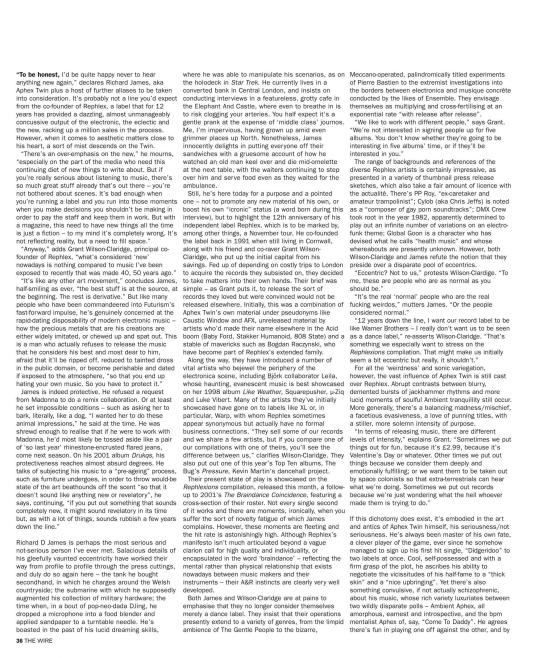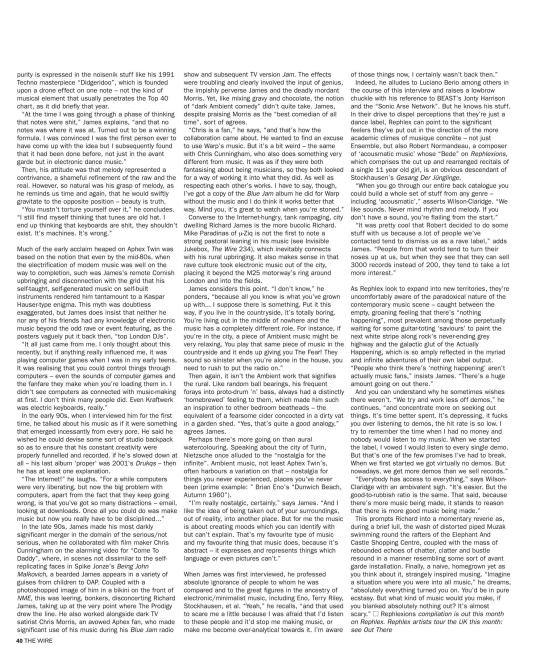#james d
Text
#star trek#spock#tos#captain kirk#spirk#star trek the original series#star trek tos#sulu#uhura#chekov#william shatner#leonard nimoy#george takei#walter koenig#nichelle nichols#yes the tribbles are a part of the crew#james d
132 notes
·
View notes
Photo


So our beloved James D is at Big Liberatos doing his thing. Cooking up some tasty dishes for all his lucky patrons. So if you like to hear the sounds of cooking playing in the background while you work ( I do. Probably from all those Gordon Ramsay shows I binge watch. lol. I digress.). or if you like to fall asleep to the sounds of a busy kitchen, go ahead and give this one a listen. Or if you just want to watch James D work...okay you get the picture. lol
CLICK HERE FOR THE FULL VIDEO
6 notes
·
View notes
Text




perfectly normal work place comedy (nothing of note happens)
#hello again i have some back logged art i wanna share#the magnus archives#tma fanart#tma#jonathan sims#martin blackwood#sasha james#tim stoker#*boop* art#fanart#(im kinda embarassed for posting like :D i drew this!! after like a couple of weeks of drawing for myself lmao)#((and then people Percieve It it's nuts to me))
7K notes
·
View notes
Text

#James Somerton#HBomberGuy#Todd In The Shadows#ToddInTheShadows#Writeing#Writers#writeblr#Inspiration#Insparational#I cracked my skull when I was a toddler and I’m still gonna cite sources for my fic.#I was apparently trying to feed a tank of fishes on a shelf. :D#I don’t remember it but I’m also not embarrassed by it#I thought about watermarking this picture but I think it should belong to everyone dealing with imposter syndrome
3K notes
·
View notes
Text

troubles that come with tribbles...
(aka a good excuse to draw one of my fav episodes and fav crew members while coming back from a heavy week at uni ;D)
#churro art#my art#digital art#illustration#fanart#star trek#star trek tos#star trek the original series#james kirk#james t kirk#jim kirk#spock#s'chn t'gai spock#nyota uhura#tribbles#AHHH I LOVE HOW THIS ONE CAME OUTTTT#IT CAME OUT SO SMOOTH AND CLEAN AND IDK I JUST LOVE HOW THESE 3 LOOK HERE!!! :d#okay quick honest moment: uni has been HEAVY this past... jeez 2 weeks?#so ive been a bit burnt out and riddled with headaches#not to mention barely any time to indulge in star trek SOBS T_T#but its okay!! im really enjoying my time in class and with my peers; i have some real awesome professors!! just... so much homework LMAO#anyways this past week ive barely drawn its kinda killing me...#but i started this yesterday as a sketch and just took the first half of today to draw this out and gosh im so in love with how it looks!!#helped a lot as a warmup AND a brain break LOL#u know me if i have the chance to draw uhura im GONNA TAKE ITTTT shes such a cutie#also can i just say that the green uniform shirt LOOKS SO GOOD ON KIRK I LOVEEE ITTT i cant believe ive barely drawn him in it ...
2K notes
·
View notes
Text
Against Lore

For the rest of May, my bestselling solarpunk utopian novel THE LOST CAUSE (2023) is available as a $2.99, DRM-free ebook!

One of my favorite nuggets of writing advice comes from James D Macdonald. Jim, a Navy vet with an encylopedic knowledge of gun lore, explained to a group of non-gun people how to write guns without getting derided by other gun people: "just add the word 'modified.'"
As in, "Her modified AR-15 kicked against her shoulder as she squeezed the trigger, but she held it steady on the car door, watching it disintegrate in a spatter of bullet-holes."
Jim's big idea was that gun people couldn't help but chew away at the verisimilitude of your fictional guns, their brains would automatically latch onto them and try to find the errors. But the word "modified" hijacked that impulse and turned it to the writer's advantage: a gun person's imagination gnaws at that word "modified," spinning up the cleverest possible explanation for how the gun in question could behave as depicted.
In other words, the gun person's impulse to one-up the writer by demonstrating their superior knowledge becomes an impulse to impart that superior knowledge to the writer. "Modified" puts the expert and the bullshitter on the same team, and conscripts the expert into fleshing out the bullshitter's lies.
Yes, writing is lying. Storytelling is genuinely weird. A storyteller who has successfully captured the audience has done so by convincing their hindbrains to care about the tribulations of imaginary people. These are people whose suffering, by definition, do not matter. Imaginary things didn't happen, so they can't matter. The deaths of Romeo and Juliet were less tragic than the death of the yogurt you had for breakfast. That yogurt was alive and now it's dead, whereas R&J never lived, never died, and don't matter:
https://locusmag.com/2014/11/cory-doctorow-stories-are-a-fuggly-hack/
Hijacking a stranger's empathic response is intrinsically adversarial. While storytelling is a benign activity, its underlying mechanic is extremely dangerous. Getting us to care about things that don't matter is how novels and movies work, but it's also how cults and cons work.
Cult leaders and con-artists know that they're engaged in mind-to-mind combat, and they make liberal use of Jim's hack of leaving blank spots for the mark to fill in. Think of Qanon drops: the mystical nonsense was just close enough to sensical that a vulnerable audience was compelled to try and untangle them, and ended up imparting more meaning to them than the hustler who posted them ever could have dreamt up.
Same with cons – there's a great scene in the Leverage: Redemption heist show where an experienced con-artist explains to a novice that the most convincing hustle is the one where you wait for the mark to tell you what they think you're doing, then run with it (scambaiters and other skeptics will recognize this as a relative of the "cold reading," where a "psychic" uses your own confirmations to flesh out their predictions).
As Douglas Adams put it:
A towel has immense psychological value. For some reason, if a strag (strag: non-hitch hiker) discovers that a hitch hiker has his towel with him, he will automatically assume that he is also in possession of a toothbrush, face flannel, soap, tin of biscuits, flask, compass, map, ball of string, gnat spray, wet weather gear, space suit etc., etc. Furthermore, the strag will then happily lend the hitch hiker any of these or a dozen other items that the hitch hiker might accidentally have "lost". What the strag will think is that any man who can hitch the length and breadth of the galaxy, rough it, slum it, struggle against terrible odds, win through, and still knows where his towel is is clearly a man to be reckoned with.
Magicians know this one, too. The point of a sleight is to misdirect the audience's attention, and use that moment of misattention to trick them, vanishing, stashing or producing something. The mark's mind is caught in a pleasurable agony: something seemingly impossible just happened. The mind splits into two parts, one of which insists that the impossible just happened, the other insisting that the impossible can't happen.
You know you've done it right if the audience says, "Do that again!" And that's the one thing you must not do. So long as you don't repeat the trick, the audience's imagination will chew on it endlessly, coming up with incredibly clever things that you must have done (a clever conjurer will know several ways to produce the same effect and will "do it again" by reproducing the effect via different means, which exponentially increases the audience's automatic imputation of clever methods to the performer).
Not for nothing, Jim Macdonald advises his writing students to study Magic and Showmanship, a classic text for aspiring conjurers:
https://memex.craphound.com/2007/11/13/magic-and-showmanship-classic-book-about-conjuring-has-many-lessons-for-writers/
There's a version of this in comedy, too. The scholarship of humor is clear on this: comedy comes from surprise. The audience knows they're about to be surprised when the punchline lands, and their mind is furiously trying to defuse the comedian's bomb before it detonates, cycling through potential punchlines of their own. This ramps up the suspense and the tension, so when the comedian does drop the punchline, the tension is released in a whoosh of laughter.
Your mind wants the tension to be resolved ASAP, but the pleasure comes from having that desire thwarted. Comedy – like most performance – has an element of authoritarianism. You don't give the audience what it wants, you give it what it needs.
Same goes for TTRPGs: the game master's role is to deny the players the victories and treasure they want, until they can't take it anymore, and then deliver it. That's the definition of an epic game. It's one of the durable advantages of human GMs over video game back-ends: they can ramp up the epicness by "cheating" on the play, giving the players the chance to squeak out improbable victories at the last possible second:
https://wilwheaton.typepad.com/wwdnbackup/2009/03/behind-the-screen.html
This is so effective that even crude approximations of it can turn video-games into cult hits – like Left4Dead, whose "Director" back-end would notice when the players were about to get destroyed and then substantially ramped up the chances of finding an amazing weapon – the chance would still be low overall, but there would be enough moments when the player got exactly what they'd been praying for, at the last possible instant, that it would feel amazing:
https://left4dead.fandom.com/wiki/The_Director#Special_Infected
Critically, Left4Dead's Director didn't do this every time. As any showman knows, the key to a great performance is "Always leave 'em wanting more." The musician's successful finale depends on doing every encore the audience demands, except the last one, so the crowd leaves with one tantalyzing and imaginary song playing in their minds, a performance better than any the musicians themselves could have delivered. Like the gun person who comes up with a cooler mod than the writer ever could, like the magic show attendee who comes up with a more elaborate explanation for the sleight than the conjurer could ever pull off, like the comedy club attendee whose imagination anticipates a surprise that grows larger the longer the joke goes on, the successful performance is an adversarial act of cooperation where the audience willingly and unwillingly cooperates with the performer to deny them the thing that they think they need, and deliver the thing they actually need.
This is my biggest problem with the notion that someday LLMs will get good enough at storytelling to give us the tales we demand, without having to suffer through a storyteller's sadistic denial of the resolutions we crave. When I'm reading a mystery, I want to turn to the last page and find out whodunnit, but I know that doing so will ruin the story. Telling the storyteller how the story should go is like trying to tickle yourself.
Like being tickled, experiencing only fun if the tickler respects your boundaries – but, like being tickled, there's always a part where you're squirming away, but you don't want it to stop. An AI storyteller that gives you exactly what you want is like a dungeon master who declares that every sword-swing kills the monster, and every treasure chest is full of epic items and platinum pieces. Yes, that's what you want, but if you get it, what's the point?
Seen in this light, performance is a kind of sado-masochism, where the performer delights in denying something to the audience, who, in turn, delights in the denial. Don't give the audience what they want, give them what they need.
What your audience needs is their own imagination. Decades ago, I was a freelance copywriter producing sales materials for Alias/Wavefront, a then-leading CGI firm that was inventing all kinds of never-seen VFX that would blow people away. One of the engineers I worked with told me something I never forgot: "Your imagination has more polygons than anything you can create with our software." He was talking about why it was critical to have some of the action happen in the shadows.
All of this is why series tend to go downhill. The first volume in any series leaves so much to the imagination. The map of the world is barely fleshed out, the characters' biographies are full of blank spots, the mechanics of the artifacts and the politics of the land are all just detailed enough that your mind automatically ascribes a level of detail to them, without knowing what that detail is.
This is the moment at which everything seems very clever, because your mind is just churning with all the different bits of elaborate lore that will fill in those lacunae and make them all fit together.
SPOILER ALERT: I'm about to give some spoilers for Furiosa.
.
.
.
.
.
.
.
.
FURIOSA SPOILERS AHEAD!
Last night, we went to see Furiosa, the latest Mad Max movie, a prequel to 2015's Fury Road, which is one of the greatest movies ever made. Like most prequels, Furiosa functions as a lore-delivery vehicle, and as such, it's nowhere near as good as Fury Road.
Fury Road hints as so much worldbuilding. We learn about the three fortresses of the wasteland (the Citadel, the Bullet Farm, and Gastown) but we only see one (The Citadel). We learn that these three cities have a symbiotic relationship with one another, defined by a complex politics that is just barely stable. We meet Furiosa herself, and learn something of her biography – that she had been stolen from the Green Place, that she had suffered an arm amputation.
All of this is left for us to fill in, and for a decade, my hindbrain has been chewing on all of that, coming up with cool ways it could all fit together. I yearned to know the "real" explanation, but it was always unlikely that this real explanation would be as enjoyable as my own partial, ever-unfinished headcanon.
Furiosa is a great movie, but its worst parts are the canonical lore it settles. Partly, that's because some of that lore is just stupid. Why is the Bullet Farm an open-pit mine? I mean, it's visually amazing, but what does that have to do with making bullets? Sometimes, it's because the lore is banal – the solarpunk Green Place is a million times less cool than I had imagined it. Sometimes, it's because the lore is banal and stupid: the scenes where Furiosa's arm is crushed, then severed, then replaced, are both rushed and quasi-miraculous:
https://www.themarysue.com/how-does-furiosa-lose-her-arm/
But even if the lore had been good – not stupid, not banal – the best they could have hoped for was for the lore to be tidy. If it were surprising, it would seem contrived. A story whose loose ends have been tidily snipped away seems like it would be immensely satisfying, but it's not satisfying – it's just resolved. Like the band performing every encore you demand, until you no longer want to hear the band anymore – the feeling as you leave the hall isn't satisfaction, it's exhaustion.
So long as some key question remains unresolved, you're still wanting more. So long as the map has blank spots, your hindbrain will impute clever and exciting mysteries, tantalyzingly teetering on the edge of explicability, to the story.
Lore is always better as something to anticipate than it is to receive. The fans demand lore, but it should be doled out sparingly. Always leave 'em wanting more.

If you'd like an essay-formatted version of this post to read or share, here's a link to it on pluralistic.net, my surveillance-free, ad-free, tracker-free blog:
https://pluralistic.net/2024/05/27/cmon-do-it-again/#better_to_remain_silent_and_be_thought_a_fool_than_to_speak_and_remove_all_doubt
#pluralistic#writing#lore#series#science fiction#the elaborations of a bad liar#always leave em wanting more#james d mcdonald#guns#pilkunnussija#craft#Silmarillion#sf#Better to Remain Silent and Be Thought a Fool than to Speak and Remove All Doubt#magic tricks#conjuring#narrative#mad max#furiosa
928 notes
·
View notes
Text
I love the Magnum Arches!! :D




#the magnus archives#tma#tma shitpost#the magnus archives shitpost#tma memes#tma meme#the magnus archives memes#the magnus archives meme#jonathan sims#martin blackwood#timothy stoker#sasha james#tim stoker#jon sims#face claims!! :D#magnuspod#magpod
1K notes
·
View notes
Text
James, running late to class: Sorry, professor, I'm late. My alarm clock didn't go off.
Everyone in the classroom staring at him:
Professor Flitwick: Nice of you to join us, Mr. Potter.
James, walking to his seat next to Sirius:
Sirius, staring holes at the back of James' head:
Professor Flitwick, turning around to resume his lesson, but just before he adds: I'd advise you you don't mistake your uniform with someone else's next time you're running late.
James, clueless: What? *then, whispering to Sirius* What?
Sirius, shooting daggers at him: Prongs. Who's Slytherin tie is this?
James, blinking, and slowly looking down at the green tie he's wearing, before looking up sheepishly: Haha, you're not going to belive this—
#hc that sirius doesn't know it's reg he just hates the idea of james fooling around with slytherins#but james is unable to keep secrets so he's going to clumsily reveal it's reg without even doing it on purpose (which makes it worse)#:D i love chaos#jegulus#james potter#regulus black#starchaser#sunseeker#marauders#marauders era#the marauders#dead gay wizards#incorrect quotes#text post#textpost#jegulus incorrect quotes#incorrect jegulus quotes#incorrect marauders quotes#jegulus text post#jegulus textpost#sirius black#james x regulus#regulus x james#regulus loves james#james loves regulus#james potter x regulus black
4K notes
·
View notes
Note
not an ask, I just wanted to say that I've reread your Gertrude is still around AU and realised just how amazing it is to watch your art style progress and get more and more refined! it's fascinating and it makes me so happy and i had to tell you <3 (I am also not exaggerating when I say that your art gives me instant happy chemicals and that your AUs all live rent free in my head)
thanks for sharing this with us 💙
Thank you so much! (´▽`ʃ♡ƪ)
ngl, it's kind of jarring for me to look back the first few chapters... especially with Jon - and his horrible orange-y skin (curse of my old laptop bad color display TT-TT ) , same thing with Sasha

#occudo's art#tma fanart#jonathan sims#martin blackwood#tim stoker#sasha james#gerry keay#gertrude robinson#gertrude is still around au ask#wish the difference was bigger :'D#but i guess still more room to grow!#funny how almost everyone went from :D to :(#also these kinds of asks make my day#sorry for replying them late
562 notes
·
View notes
Text

learnt that one piece used the sets from the black sails and just couldn’t help myself
#black sails#james flint#one piece#monkey d. luffy#opla#op luffy#one piece live action#artists on tumblr#digital illustration#illustration#a very self indulgent piece for me and my twt oomfie#but maybe like 2 people here will enjoy it too
426 notes
·
View notes
Text









APHEX TWIN in THE WIRE [NOV 2003]
2K notes
·
View notes
Text
love when ppl make random ass aus for their fave ship that r just nonsensical and crazy . anyways jegulus au in which the potter’s run an animal shelter and usually order their pet supplies online but one day james goes to a chain store and finds regulus, who hates every single thing abt his shitty fucking pet store job and ONLY stays bc having a shitty job getting to pet cats on a leash is better than having a shitty job and not being able to. anyways james sees a twink and loses a few brain cells so he just pretends he has NEVER had a pet before and asks for regulus’ advice to talk to him. in his nervousness james is like “so dogs can’t eat chocolate right hahaha that’s crazy i’d go crazy” and regulus is like “i don’t get paid enough for this”
#regulus black#james potter#marauders era#marauders#jegulus#snake in the lions den#when regulus finds out abt the shelter he’s like wait that’s so sweet what the fuck#and then he’s hit w the earthshattering realization that the idiot regular who always bothers him is actually#incredibly smart and talented and caring and#Oh G-d HIS EXACT TYPE!! THE MADNESS#very inspired by my real life shitty pet store job#Not naming names but a certain chain pet store which has a three letter name should burn#james: so lol dogs should eat right?#regulus: this is fucking unbelievable
520 notes
·
View notes
Text

Lament for Icarus
#trigun#trigun stampede#nicholas d wolfwood#wolfwood#tristamp#vash the stampede#vash#meryl stryfe#milly thompson#vashwood#mashwood#art#aireosart#illustration#lament for icarus#herbert james draper
2K notes
·
View notes
Text

Made some lil guys



Bonus! Scotty

(yes i know the rank bands are inaccurate but squigglies are hard to make with flannel)
#my art#not art?#artists on tumblr#star trek tos#star trek the original series#star trek#spock#james t kirk#jim kirk#leonard mccoy#bones mccoy#montgomery scott#mcspirk#been artblocked for like two months so i made some puppets instead#me: wow finally exams over i can finally draw :D adhd brain: ha ha u thought
628 notes
·
View notes






